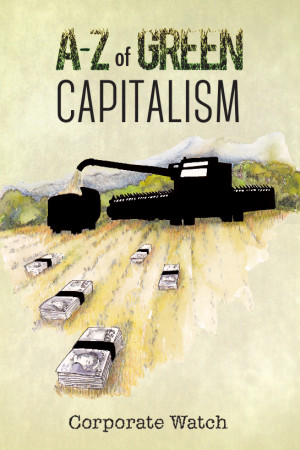Description
The US/UK-led invasion of Iraq in March 2003 was not to remove Saddam Hussein, or to lessen the risk of terrorist attacks, or to reduce supplies of Weapons of Mass Destruction (WMD). It was about preserving US/UK access to, and control over, the oil reserves of Iraq, the second largest in the world. This being the case, a military invasion and occupation is insufficient. In order to guarantee long-term control over Iraqi natural resources an Iraqi economy has to be created that is hospitable to the oil majors, such as Shell, Esso and BP. Corporate involvement in Iraq is therefore one of the key issues in the world today. If the corporate occupation of Iraq succeeds in creating a neo-liberal Iraq, then control over these immense natural resources passes firmly into the hands of US/UK-backed corporations. Iraq’s oil will become further fuel for the current cycle of war, invasions and environmental catastrophe, which threaten us all.
There are, of course, several different motivations behind the presence of corporations in Iraq, but they mostly spring from pro-corporate ideology amongst the political and corporate elite. One reason is what has been called ‘military Keynesianism’: the use of the military (and in this case, aid) budget to shovel large amounts of public money towards private businesses and thereby supposedly stimulate the economy. The money that corporations have been making in Iraq has largely come from US and UK tax money, where it has not been skimmed off Iraqi oil revenue. Another related, but cruder, motivation comes from the desire of the US/UK political cliques to reward their domestic corporate backers, and the neo-conservative connections to the major Iraq contractor Haliburton/KBR are a basic example of this. The pressure on the Blair government to deliver reconstruction contracts for UK corporations in Iraq is a more nuanced version.
A large part of the story of UK companies’ involvement in Iraq has been one of disappointment. As a member of the ‘coalition of the willing’ that invaded Iraq, the UK was expecting to reap significant rewards in terms of reconstruction and oil contracts. The hundreds of millions of dollars that UK companies have received is relatively small change when compared to the lion’s share taken by the US. This reflects the weak bargaining position that the UK is in, protestations of a ‘special relationship’ aside. It also indicates that the British participation in the Iraq war was strongly ideologically driven – due to the Blair government’s belief in the righteousness of the ‘War on Terror’ and probably also a pragmentic decison about the importance of continued control over Middle Eastern oil.
While the hopes for major reconstruction contracts have not been realised, despite the best lobbying efforts of the UK government, the UK private sector has been a very important player in the creation of a new, pro-corporate, Iraq. In the fields of pushing privatisation through consultancy work, and in the provision of private security to guard the reconstruction, British based and British managed companies have played a crucial part.
The oil majors, such as Shell and BP are barely touched upon in this report. They are holding back on making massive investments until a safe pro-corporate environment has been created. The memory of the oil company nationalisations of the 1950s-70s is still strong:
At the moment, oil companies are limiting their activity to surveying the oil fields, preparing development plans and signing agreements with the Oil Ministry in the hope that these will pay off once the legal and security framework exists for them to be implemented.
This analysis: of a corporate occupation of Iraq, is also one of hope. The economic capture of Iraq is not yet accomplished. There is still time for both the occupations to be reversed. Eventually, this should lead to a ‘reconstruction’ of Iraq by using its own natural wealth: in minerals, skills and education; and a reconstruction controlled by the people who’s own society is being re-made.
References [1] ‘Security fears put a block on Iraq upstream reinvestment’, Lloyd’s List, 25 November 2003
Published in 2006.



